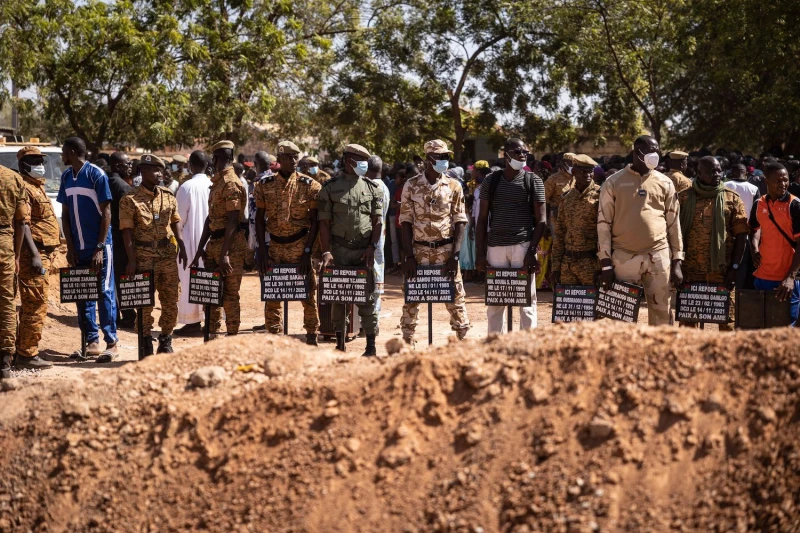Burkina Faso’s government resigns amid protests and the military’s failure to counter Islamists.
More Foreign Troops Won’t End Violence in the Sahel
Burkina Faso’s prime minister was fired on Thursday following violent anti-government protests over ongoing Islamist violence. This came just days after gunmen set fire to a bus, killing at least 30 passengers—including children—in Nigeria’s northwestern Sokoto state.
Armed groups have multiplied across West Africa, and the violence in Mali and northern Nigeria has spread to bordering countries. In Burkina Faso, more than 1 million people have been displaced. Burkina Faso’s poorly managed military has been struggling to contain a conflict that began in Mali in 2012 and spread as jihadis reorganized elsewhere.
The deadliest incident came in November when over 50 people, mostly military police officers, were killed by armed groups at a security post near the northern town of Inata. Burkinabes were angry over news that those officers had gone two weeks without food rations prior to the attack.
Burkina Faso’s government falls. Burkina Faso Prime Minister Christophe Joseph Marie Dabiré resigned in a move that triggered the sacking of the entire government, as stipulated by law. President Roch Marc Christian Kaboré named Lassina Zerbo as the country’s new prime minister on Saturday, with a new cabinet announced Monday. But critics say the new hire obscures protesters’ demand for Kaboré’s resignation over the crisis.
The decades-old conflict is more complicated than groups linked to the Islamic State and al Qaeda. Security analysts say the violence is a symptom of deeper, unresolved issues, namely ineffective governance, impunity for government officials who abuse civilians, a lack of job opportunities, and extreme climate shifts. Youth anger on those issues provides a powerful stimulus for jihadi groups that seek to recruit among the local population.
In rural areas, people have been experiencing difficulties for a long time around access to public services and justice, said Ibrahim Yahaya Ibrahim, senior Sahel analyst at the International Crisis Group. The knock-on effect of jihadi recruitment from nomadic Fulani pastoralists is that “the Zarma [people] are organizing militias to try to fight back.” What began as a conflict between jihadis and the state has ended up becoming a conflict between locals.
Does talking to terrorists work? In March, secret negotiations between Burkina Faso’s government and jihadis coincided with a sharp drop in deaths. Over the last few months, communities have also opened dialogues. They’ve had success in central Mali and northern Burkina Faso, Ibrahim said. But that reduction is “precarious as long as we do not have a larger and top-level dialogue.”
Senegalese Foreign Minister Aïssata Tall Sall called on China “to be a strong voice in support of Senegal and all the countries involved in the problem of insecurity in the Sahel” at the China-Africa summit this month. But analysts believe China is unlikely to get involved, because it could end up stuck in a conflict with no apparent end.
Will Russia replace France? As France begins a drawdown of its 4,500 soldiers deployed in the Sahel, Mali’s military rulers want to fill that vacuum with the Russian security firm known as the Wagner Group. But experts say the presence of more foreign troops will not solve the crisis. There is already growing hostility from locals against French troops over civilian deaths.
“One of the biggest problems with foreign troops is that they do not understand the context of the violence, this is a very locally ingrained violence with a lot of intricacies between different communities,” Ibrahim said. “At least the French can speak a language that some local people understand.”

